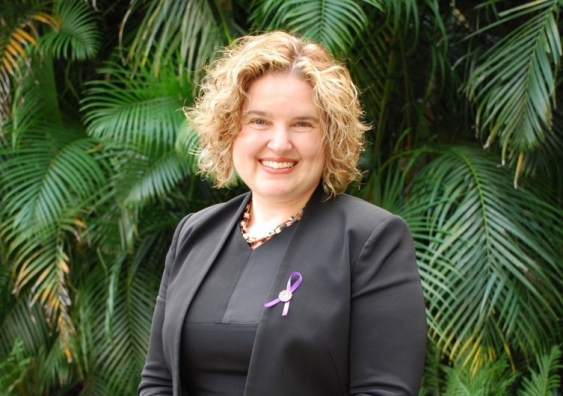A partnership between the Pancreatic Cancer Research Hub (PCRH) and the Molecular Screening and Therapeutics (MoST) trial in Sydney could help improve the poor survival rates of pancreatic cancer.
The partnership is a collaboration between PCRH researchers professors Phoebe Phillips and David Goldstein (UNSW), Professor Paul Timpson and Associate Professor Marina Pajic (the Garvan Institute), in collaboration with Professor David Thomas from the Australian Genome Medicine Centre (MoST trial).
It has the potential to change the way pancreatic cancer patients are enrolled in trials, as well as to create future opportunities for patients to access more personalised approaches to treatment.
“The established MoST trial framework has a track record of matching cancer patients with novel therapies that target the biology of individual tumours,” says Professor Phillips, a world-leading pancreatic cancer researcher and a joint leader of the PCRH.
“Importantly, the MoST framework will give our researchers a platform to fast-track precision testing of new therapeutic treatments that could lead to better outcomes for patients.”
This partnership is just one piece of a broader research puzzle being developed within the PCRH, one of the pre-eminent research groups in the field. And it’s urgent work: with a five-year survival rate of only 10.7 per cent, pancreatic cancer is expected to become Australia’s second leading cause of cancer mortality by 2025.
The Hub emerged from the Cancer Clinical Academic Group (Cancer CAG), part of the Maridulu Budyari Gumal (SPHERE) academic health science partnership in Sydney. The Cancer CAG provides a range of grant funding opportunities to support novel translational research within the Hub, with specific funding streams that target early and mid-career academics with the aim of building capacity within the cancer research pipeline.
Dr Chantal Kopecky and Dr Omid Faridani are two early career researchers who received approximately $50,000 each in seed funding from the CAG this year. Like the PCRH/MoST collaboration, these projects both have a strong focus on personalised medicine.
Dr Kopecky is exploring the potential of an existing drug as a treatment for pancreatic cancer – the drug will be delivered to the tumour site using an established nanoparticle delivery vehicle that can bypass the scar tissue that surrounds pancreatic cancer tumours.
She is also part of a team pioneering a novel technique to grow human pancreatic tumour tissue in the lab for up to 12 days. This model could support researchers to test different cancer therapeutics on individual patient tumours and advise the patient’s treating clinician on which treatments are more effective.
“This model overcomes several limitations of pre-clinical pancreatic tumour models and contains the complex scar tissue and multi-cellular components present in human tumours,” Dr Kopecky says.
By contrast, Dr Faridani is looking at circulating tumour cells – cells shed by tumours that travel around the body via the bloodstream. Specifically, he’s interested in whether these cells can provide information about the genetic makeup of pancreatic cancer tumours that could help clinicians personalise their treatment approaches for individual patients.
“The way we do the blood test and analyse the molecules is very unique. We’ve actually developed a number of technologies in this regard, and one of them is a unique microfluidic system that enables us to detect traces of tumour materials that are in the bloodstream,” he says.
The Cancer CAG funding has been instrumental in getting both these projects off the ground, as well as supporting both Dr Kopecky and Dr Faridani to start building research track records that will set the scene for their future careers. The grant’s emphasis on collaboration means that both researchers have also established a number of new partnerships with clinicians and academics across NSW and beyond.
“It’s hard as an ECR to get established in your field. People expect you to produce data, have your own projects and conduct independent research, but you need money to do it,” Dr Kopecky says.
“I was really happy that I was awarded this grant, because it really allows me and my collaborators to generate essential pilot data, which can be used to leverage further grants.”
Thursday 19 November is World Pancreatic Cancer Day. Find out more about the Pancreatic Cancer Research Hub and the SPHERE Cancer Clinical Academic Group.

